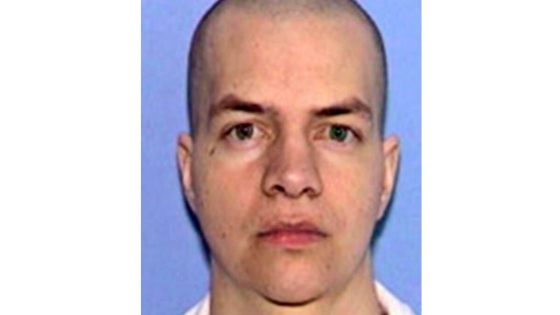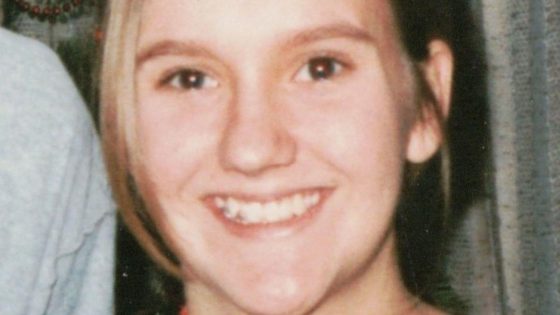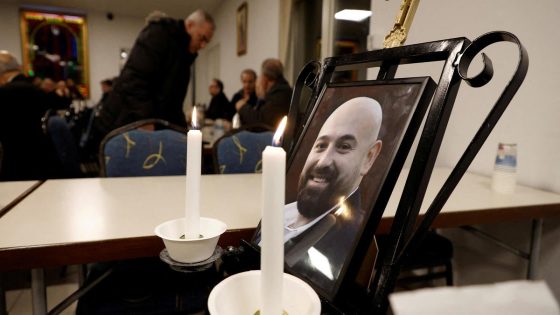Richard Lee Tabler lay strapped to a gurney in the death chamber at the state penitentiary in Huntsville, Texas, on the evening of February 14, 2025. As the clock ticked to 6:38 p.m. CST, the weight of his past loomed heavy. Just moments before, he had expressed remorse for his actions—his words directed toward the relatives of the two men he murdered in cold blood more than two decades prior.
- Texas man Richard Lee Tabler executed.
- Tabler expressed regret for his actions.
- He killed strip club manager and friend.
- Confessed to additional murders of two teens.
- Execution followed lengthy legal appeals process.
- ACLU claimed inadequate legal representation.
Tabler, 46, was convicted of the Thanksgiving night 2004 killings of Mohammed-Amine Rahmouni and Haitham Zayed, executed for crimes that not only shattered families but also reverberated through Texas’s criminal justice system in unexpected ways. He had worked at the TeaZers strip club, where Rahmouni managed, until he was banned due to escalating tensions between them. Authorities eventually uncovered that the meeting between Tabler and the men, under the pretense of purchasing stolen stereo equipment, was a deadly ambush.
“I had no right to take your loved ones from you,” Tabler said, his voice shaky, as he glanced at the relatives of his victims watching through a glass panel. “I ask and pray… that one day you find it in your hearts to forgive me for those actions.” His poignant expression of regret marked the beginning of the end for a life marred by violence.
As he awaited the lethal dose of pentobarbital, Tabler reflected aloud on his family’s support, thanked prison staff for their compassion, and declared, “I am finished.” His last words were a simple, strained apology, murmured just before the drugs coursed through his veins, ending his life in a matter of moments.
Tabler was not a stranger to controversy; his actions in the years leading to his execution ignited an unprecedented lockdown of Texas’s prison system. In 2008, from his death row cell, he threatened state Senator John Whitmire over the phone, boasting he knew details about the senator’s family. This led to the confinement of over 150,000 inmates as officials seized more than 100 contraband items, including cellphones—a significant escalation in prison security operations in Texas.
Tabler’s descent into violence wasn’t limited to the two men he murdered that night. He also confessed to the killings of two teenage girls, Tiffany Dotson and Amanda Benefield, who worked at the same club. Though he was indicted for their murders, he was never brought to trial. The haunting question of their fate weighed heavily on the minds of witnesses like George Dotson, Tiffany’s father, who took a decade to muster the strength to witness Tabler’s execution. “It took me 20 years to get here,” he said, voicing the complex emotions that accompanied this moment of justice.
Before his execution, Tabler had repeatedly requested his appeals be halted, a decision that raised alarms over his mental competency. Legal debates surrounding his case highlighted allegations of inadequate representation and the impact of severe mental illness that had reportedly foreshadowed his violent tendencies. The ACLU’s intervention to halt his execution was ultimately denied, as courts maintained that his rights had been upheld throughout the judicial process.
The tragic story of Richard Lee Tabler reflects not only the severe consequences of violent crime but also the complex strands of justice, psychological struggles, and the pain inflicted on families that endure long after the acts are committed. With Tabler’s execution, the unfolding narrative of accountability for past actions highlights a moment of closure for some but also raises questions about a justice system still grappling with the intersection of mental health and culpability.
As the dust settles on this chapter, Texas prepares for the next execution—a stark reminder that the states often wield capital punishment despite ongoing debates over morality, efficacy, and the very nature of justice.

































